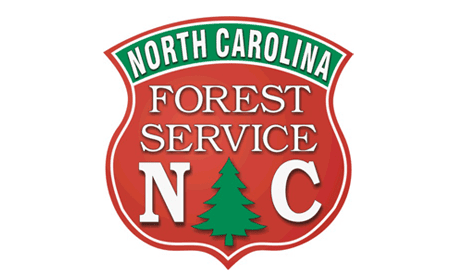Be safe when cleaning up debris from Hurricane Matthew
As North Carolina residents begin to clean up in the wake of Hurricane Matthew, the N.C. Forest Service is encouraging them to remember to be careful when burning debris.
The current situation has many roads closed due to flooding and other issues. This, combined with emergency response resources being heavily engaged in other areas, including more than 100 N.C. Forest Service personnel, means getting help to deal with an escaped burn may be difficult.
“While it’s hard to believe with as much rain has Hurricane Mathew brought to the state, grass and twigs can, and will, dry out quickly and become fuel for a fire,” said Agriculture Commissioner Steve Troxler. “It’s also important to remember that it is illegal to burn anything other than yard debris.”
There are many factors to consider before burning debris. The N.C. Forest Service encourages residents considering debris burning to contact their local county forest ranger. The ranger can offer technical advice and explain the best options to help maximize the safety to people, property and the forest.
The Forest Service urges people to follow these tips to protect property and prevent wildfires:
- Consider alternatives to burning. Some types of debris, such as leaves, grass and stubble, may be of more value if they are not burned, but used for mulch instead.
- Check local burning laws. Some communities allow burning only during specified hours. Others forbid it entirely.
- Make sure you have a valid permit. You can obtain a burning permit at any Forest Service office or authorized permitting agent, or online at ncforestservice.gov.
- Keep an eye on the weather. Don’t burn on dry, windy days.
- Local fire officials can recommend a safe way to burn debris. Don’t pile vegetation on the ground. Instead, place it in a cleared area and contained in a screened receptacle, away from overhead branches and wires.
- Household trash should be hauled away to a trash or recycling station.
- Be sure you are fully prepared before burning. To control the fire, you will need a hose, bucket, steel rake and a shovel for tossing dirt on the fire. Keep a phone nearby, too.
- Never use kerosene, gasoline, diesel fuel or other flammable liquids to speed debris burning.
- Stay with your fire until it is completely out.
- These same tips hold true for campfires and barbeques as well. Douse burning charcoal briquettes or campfires thoroughly with water. When soaked; stir the coals and soak them again. Be sure they are out cold and carefully feel to be sure they are extinguished. Never dump hot ashes or coals into a wooded area.
- Burning agricultural residue and forestland litter: In addition to the rules above, a fire line should be plowed around the area to be burned. Large fields should be separated into small plots for burning one at a time. Before doing any burning in a wooded area, contact your county ranger, who will weigh all factors, explain them and offer technical advice.
Studies have shown that taking these and other measures can reduce the possibility of wildfires.
For more information on ways you can prevent wildfires and loss of property, log onto ncforestservice.gov.

